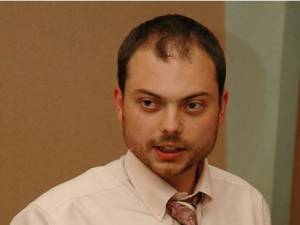Deadly secret: Putin criminalizes disclosure of Russian losses in Ukraine

Russian President Vladimir Putin has issued a decree classifying information about Russian military losses during “special operations in peacetime”, thus potentially enabling prosecution and imprisonment for divulging details about the deaths of Russian soldiers in eastern Ukraine. As well as coinciding with publication of a second damning report this month about Russia’s undeclared war on Ukraine, the decree comes as another opposition politician Vladimir Kara-Murza, lies remains gravely ill in Moscow with symptoms of poisoning.
There is also news that Twitter has agreed to remove material that Russia has labelled ‘extremist’, with the term used very loosely, often in connection to those critical of the current regime in Russia. This comes after announcements earlier in the week that Russia was seeking similar ‘cooperation’ from Facebook and Google.
Putin’s decree does not refer to military engagement, which the Kremlin with ever fading credibility denies, nor does it specify what is to be understood by ‘special operations’.
The decree is hoped by a member of the Presidential Human Rights Council to refer only to statistical information about the numbers of soldiers killed, however the wording seems vague enough to leave scope for doubt as to how broadly it could be applied.
Human rights lawyer Ivan Pavlov considers the decree to be in breach of Article 7 of the Law on State Secrets which clearly stipulates information which may not be classified. This is “information about emergencies and catastrophes, jeopardizing citizens’ safety and health, and their consequences”. He is in no doubt that the decree is aimed at stopping any attempts to investigate what he calls the Ukrainian situation. He points out that Article 283.1 of the Criminal Code envisages punishment for unlawfully gathering information constituting a state secret, even if you didn’t know it was a secret and warns of a likely spate of prosecutions for supposed ‘treason’.
Sergei Krivenko from the Human Rights Council asserts – or “hopes” - that the decree applies only to statistics, and not to mothers, for example, who inform of the death of their sons in Ukraine. He believes that it is just as possible as before to speak about this, but that now the Defence Ministry will be able, on the basis of the decree, to refuse to provide this information. He seems more optimistic than Pavlov in assuming that the provisions of the Law on State Secrets which, for example, prohibit classifying information pertaining to people’s rights and liberties, will prevail. He does, however, acknowledge the lack of any legal definition for the term ‘special operation’ meaning that it remains to be seen how it will be interpreted.
News of the decree coincided with publication by the Open Society Foundation of the English version of the original report Putin. War. The report was put together by associates of slain politician Boris Nemtsov who had been investigating Russian military deaths in Ukraine when he was gunned down near the Kremlin on Feb 27 this year. On Thursday another equally damning report Hiding in Plain Sight. Putin’s War in Ukraine was published by the Atlantic Council.
 Viktor Kara-Murza
Viktor Kara-Murza
The decree is so incriminating that had it not been signed by Putin himself, you could almost believe somebody was setting him up.
There have already been attempts to conceal information claiming that they were ‘state secrets’. As reported, Lev Schlosberg, the Pskov journalist and politician who first revealed the deaths of probably most of a Pskov paratrooper regiment in Ukraine last August. He was told by the military prosecutor when he asked for information about deaths of soldiers that the information was a ‘state secret’.
Mother of seven, Svetlana Davydova was also accused of state treason and remanded in custody over her phone call to the Ukrainian embassy in Moscow. She wanted to avoid bloodshed by warning them that Russian soldiers from Viazma (Smolensk oblast) were probably being sent to Ukraine.
While the scandal that emerged over the detention of a mother still breastfeeding her 2-month-old daughter resulted in Davydova’s release from custody, it took lawyer Ivan Pavlov to make it quite clear how incriminating the court trial must look. Something which is false cannot be deemed a state secret, and Russia is continuing to deny deployment of its forces in Ukraine.
Putin’s latest decree has made that denial even more hollow. Presumably, feeling the threat of information which can no longer be concealed, the aim is pure intimidation and terror of the population, with all too clear warnings of the legal - and other - consequences of not remaining silent.





